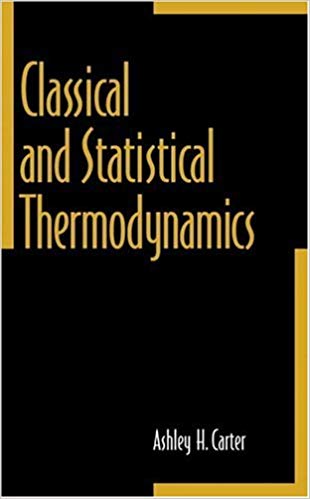
The Rise of Torahism
During a recent theological discussion, a friend asked me to watch a video by a man named Zachary Bauer who was defending a new faith movement in which Christians are “discovering Torah.” This is a movement that, from what I have gathered so far, believes that we need to return to living under the Abrahamic covenant by keeping the Old Testament feasts and practicing Torah. They believe Jesus was the Messiah, but He is not to be worshipped. They say only God the Father should be worshipped and they reject the Christian concept of the Trinity. I’m not sure if there’s an official name for this movement. It’s not Judaism and it’s not Christianity. When I asked my friend (who is part of this movement) he said he just considers himself a “believer.” So for purposes of brevity, I will refer to this belief system as Torahism and its followers as Torahists. (But I’m open to changing that if any of its adherents would like to correct me.)
In the video above, Bauer, our winsome host, tackles one of the most common questions a Torahist hears while sharing their newfound discovery with their friends: “If what you’re saying is true, how come in all these thousands of years no one has figured that out?” I found this very interesting because that’s one of the big questions I have! Why should I believe the Torahist interpretation of Scripture when it conflicts with what the brightest theological minds of orthodox Christianity have discovered over thousands of years?
On the one hand, we have Torahism, a new faith movement that claims to have finally discovered the truth that we should live under the Torah and the Mosaic covenant. And on the other hand, we have thousands of brilliant minds including Ignatius, Polycarp, Augustine, Anselm, Aquinas, Luther, Calvin, Edwards, Wesley, Chesterton, Spurgeon, Billy Graham, C.S. Lewis et al. who believed otherwise. These men were not infallible or flawless, of course. But they were brilliant thinkers with a passion for God. So why should we believe Torahism over orthodox Christianity? In his video, Bauer gives us two reasons. Let’s look at them.
Reason #1

The first reason Bauer offers is literacy. He claims that most people throughout history have been illiterate and that literacy rates have grown exponentially over time. The further you go back in time, Bauer says, the less literate people there were. He shows some great empirical data and statistics to make this point. And, of course, he’s correct. That is all true. He sums up his point by saying, “Guys, the biggest reason this hasn’t been discovered until now is
Unfortunately, it does not follow that because the literacy rate of the world is at its highest point we can now more accurately interpret the Bible. There are three problems with that logic:
- Literacy refers to one’s ability to read, not their ability to think, understand, or reason. Literacy is obviously a basic requirement in order to read Scripture, but the ability to understand and interpret it accurately is a whole other animal. Among other things, accurate interpretation requires education, intelligence, and the cognitive ability to deeply study a subject. A poor, uneducated yet literate citizen of a third world country would certainly be able to understand the basic truths of Scripture and find Jesus and salvation. But we wouldn’t look to that person to develop a comprehensive, biblically-accurate theology or discover the myriad cultural, historical, linguistic, philosophical, and theological insights the Bible has to offer. In fact, I would submit that the more literate the world becomes, the more errant interpretations of Scripture we may find. We may have more people who can read but are not necessarily well-educated, well-read, trained in exegesis and hermeneutics, or even interested in spending years of their life studying one Book. This makes a fertile environment for the rise of errant theology.
- The thousands of brilliant theologians and scholars who have interpreted Scripture over the past two millennia were not illiterate; they were highly educated, extremely well-read, and well trained. Most of them spoke and read multiple languages and they spent decades of their lives studying the Scriptures. (Check out the book “God’s Secretaries” for a great example of the kind of minds I’m talking about.) Even if 99% of the general population was illiterate, that has no bearing on the work of the highly-literate theologians and scholars who have poured over the Scriptures over the centuries. Modern orthodox Christianity is not built on the opinions and beliefs of the illiterate masses.
- We serve an omnipotent, omniscient God in Whom there is no deceit. God can do whatever He wants, of course, and as His creatures, we do not have the capacity to ever fully understand Him (Isa 55:8-9). But it sure seems out of character for God to give His Word in written form (a.) to a world where almost no one can read it, and (b.) knowing full-well that it will lead to centuries of confusion, misinterpretation, and human beings following false doctrines to their own damnation. To say that the truth of Scripture was kept hidden from mankind for two thousand years only to be discovered now in the 21st century by the Torahists is quite a stretch. It’s much more plausible that Torahism and its new interpretation of Scripture are in error.
Reason #2

The second reason Bauer gives why we’re just now discovering Torah is because we now have such easy access to the Bible. He claims that the written Word was kept from us and that the church lied to us. And he’s right on both counts.
For a long time, the church did try to keep the laity in the dark about what Scripture actually says. It was a power play; the church did not want people interpreting Scripture for themselves because they wanted to maintain control. By doing this, they were able to make up completely false doctrines and use them to amass power and wealth. They would do things like collect indulgences (money) from the unwashed masses who wanted to get their dead relatives out of purgatory. The average citizen didn’t have access to a Bible and probably couldn’t read one if they did. So they just believed what the church told them and paid up.

In his second reason, Bauer is really just re-stating his first reason in a different way. It does not logically follow that because we now have easy access to the Bible we can or will more accurately interpret it. Just because someone has access to a book and the ability to read it does not mean they’ll be able to understand it or accurately interpret its meaning. For example, consider Classical and Statistical Thermodynamics by Ashley H. Carter. We all have access to this book and the ability to read it. But that’s a whole lot different than saying we can all understand it.
There are two other problems with Bauer’s second reason:
- Although the church tried to keep Scripture from the unwashed masses they were not ultimately successful. They may have kept much of the population in the dark for a long period of time, but many theologians and scholars had direct access to Scripture during that time. They could read it in Hebrew, Greek, and Latin, and they studied it deeply. Which leads to the second big problem:
- Even during the period of time when the church tried to deny access to the Bible, there were many Believers who opposed the church because they knew the truth. It culminated in Martin Luther’s 95 Theses and the Reformation movement, of course. But there were many forerunners of Luther including Nicholas of Lyra, Valla, Erasmus, the Brethren of the Common Life, Savonarola, Hus, Waldo and his Waldensians, Wycliffe, etc. Even King Henry the 8th played a role in breaking away from the church in Rome. It’s not like the whole world was in the dark about the truth until the Torahists finally arrived on the scene in recent years.
Bauer seems like a genuinely good and sincere man. But unfortunately, his defense of Torahism falls far short of making a case. There is a very good reason that Torahists are met with staunch resistance by thoughtful Christians; we recognize that Torahism is a false gospel. Salvation does not come through obedience to the Torah (Gal 2:15-16, Heb 7:18-19, Heb 10:1-10).
What’s more, claiming modern Christianity is a product of Roman interference or Gentile pollution simply does not hold water because all this time we have had direct access to Scripture itself. Modern orthodox Christianity is not preaching about the teachings, writings, and traditions of ancient Rome or Greece. We’re preaching about Christ, and Him crucified (1 Cor 2:2) and trying to live out a faith that is built on (and can be measured against) Scripture itself.

The miracle of Scripture is that it contains truths that even a child can understand. And at the same time, it holds truths that are so deep and mysterious that after more than two thousand years of the world’s brightest minds mining its depths we’re still nowhere near exhausting its treasures. In fact, as mere humans, none of us are capable of understanding Scripture on our own. It’s only when it is illuminated for us by the Holy Spirit that we’re able to gain any true understanding of its spiritual truths. Jesus told us that the Father will send the Holy Spirit to teach us all things (John 14:26). And when He, the Spirit of truth, comes, He will guide us into all the truth (John 16:13). In fact, the spiritual gift of teaching the Scriptures is one of the gifts of the Holy Spirit (Rom 12:6–8, 1 Cor 12:28, Eph 4:1-12).
Yes, the church has made errors throughout history because the church is made up of imperfect human beings. But the church is God’s chosen vehicle and it has also corrected itself over time. And because of our access to God’s unchanging Word and the ministry of the Holy Spirit, we have a compass that we can use to recalibrate ourselves when we begin to recognize that we may be straying from the truth. And in a spirit of love and concern, I want to share a warning with all Torahists, as my brothers and sisters: you are straying from the truth. Salvation is found in Christ alone (John 3:36, Acts 4:12, Eph 2:8-10, Gal 2:15-16, 1 Cor 15:22, 2 Cor 5:21, 1 Tim 2:5). May God richly bless you as you seek Him in spirit and in truth.
